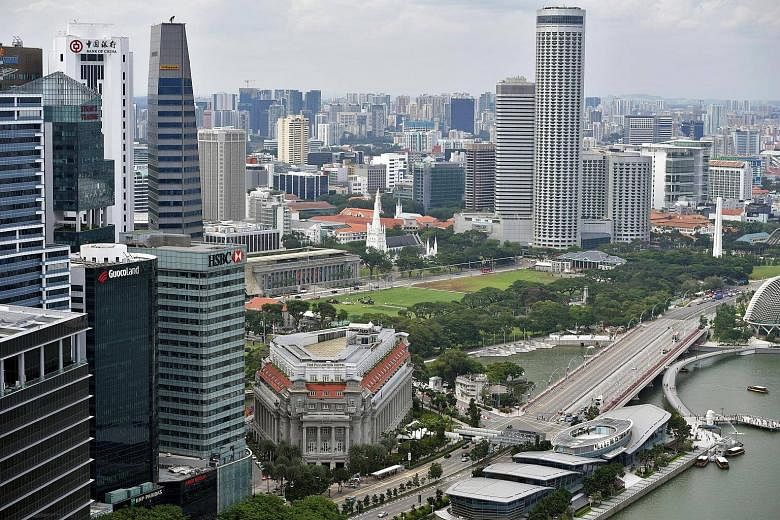To the perennial list of grouses about business costs in Singapore, companies are now adding another gripe. Come Budget Day, six in 10 are hoping for measures to reduce government compliance costs, fees and taxes, according to a recent survey by the Singapore Business Federation. Abiding by the growing checklist of regulations is now seen as a bigger hurdle for businesses here than gaining access to finance and overseas markets, or dealing with technological change and disruption.
Given Singapore's status as an advanced economy, higher compliance costs are both a necessity and a burden. A mature economy must draw level with the regulatory standards of its best-in-class peers if it is to enjoy the membership benefits of the developed world, including trade pacts and other cross-border cooperation agreements. The current realities of increasingly sophisticated terrorist funding channels and complex financial instruments form a strong argument for monitoring mechanisms more meticulously, especially in the areas of money-laundering prevention and customer due diligence. Yet the slower growth that is inevitable for developed economies also puts pressure on businesses, and compliance demands squeeze them further. The chief executive of one local lender, for example, was quoted recently as saying that the bank's compliance-related expenses have risen 35 per cent in each of the last three years.
As new regulations are introduced, regular reviews of the overall compliance system can help to ensure that the total costs of adhering to regulations do not outweigh the total benefits. Outdated or unnecessarily onerous reporting requirements could hurt not only companies, but potentially also consumers. While each new regulatory requirement might make sense on its own, and serve some immediate concern of some department or community champion, the combined cost of complying with a gamut of new rules might prove onerous and counter-productive. Businesses may be forced to pass on to customers some of their mounting costs of meeting more stringent standards, or lower the quality of their products and services to stay afloat.
Hence, new moves announced recently to reduce the regulatory burden on companies are welcome. These include eliminating the need for annual general meetings if private companies fulfil other safeguards, and doing away with the legal requirement for companies and limited liability partnerships to use a common seal to enter into contracts. Singapore's robust regulatory regime is one of its key competitive advantages. The goal must be to update rules continually and enhance compliance while ensuring that the cost of doing so does not detract from the economy's attractiveness.

